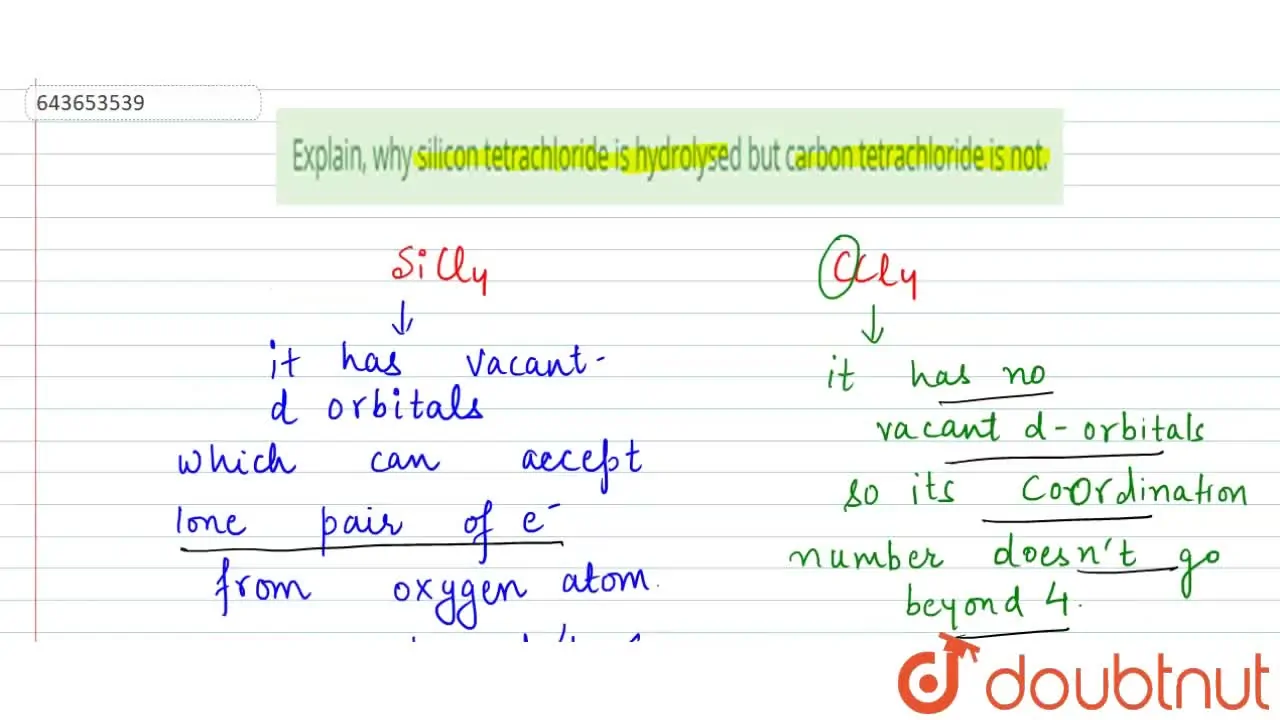Explain, why silicon tetrachloride is hydrolysed but carbon tetrachloride is not.
Step by step video & image solution for Explain, why silicon tetrachloride is hydrolysed but carbon tetrachloride is not. by Chemistry experts to help you in doubts & scoring excellent marks in Class 11 exams.
Related Playlists
- BOOK - ICSECHAPTER - SOME P-BLOCK ELEMENTS EXERCISE - VERY SHORT ANSWER TYPE QUESTIONS53videos
SOME P-BLOCK ELEMENTS
- BOOK - ICSECHAPTER - SOME P-BLOCK ELEMENTS EXERCISE - SHORT ANSWER TYPE QUESTIONS79videos
SOME P-BLOCK ELEMENTS
- BOOK - ICSECHAPTER - SOME BASIC CONCEPTS OF CHEMISTRY EXERCISE - NCERT TEXT-BOOK EXERCISES (WITH HINGS AND SOLUTIONS)36videos
SOME BASIC CONCEPTS OF CHEMISTRY
- BOOK - ICSECHAPTER - STATES OF MATTER : GASES AND LIQUIDSEXERCISE - NCERT TEXT-BOOK EXERCISES (With Hints and Solutions)23videos
STATES OF MATTER : GASES AND LIQUIDS
Similar Questions
Carbon tetrachloride is used as:
View SolutionThe bond in Carbon Tetrachloride is
View SolutionExplain why carbon tetrachloride does not dissolve in water.
View SolutionExplain why Carbon tetrachloride does not dissolve in water.
View SolutionWhich type of bond is present in carbon tetrachloride ?
View SolutionExplain why silicon shows a higher covalency than carbon.
View SolutionSilicon tetrachloride undergoes hydrolysis to form silicic acid.
View SolutionCalculate the molar mass of Carbon tetrachloride
View SolutionConversion of Carbon disulphide into carbon tetrachloride
View SolutionCarbon tetrachloride does not conduct electricity.
View Solution


